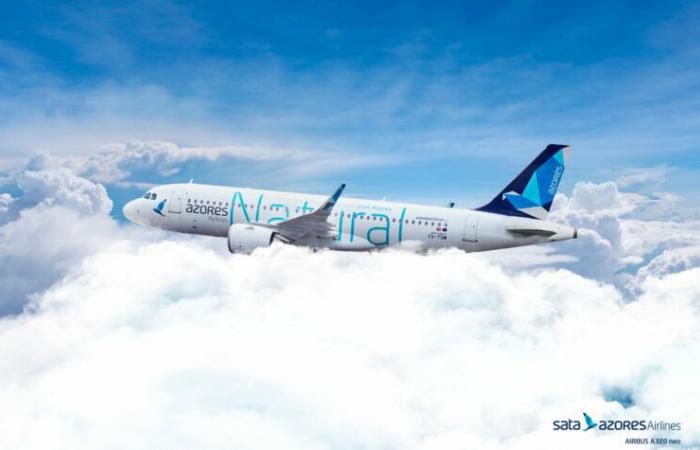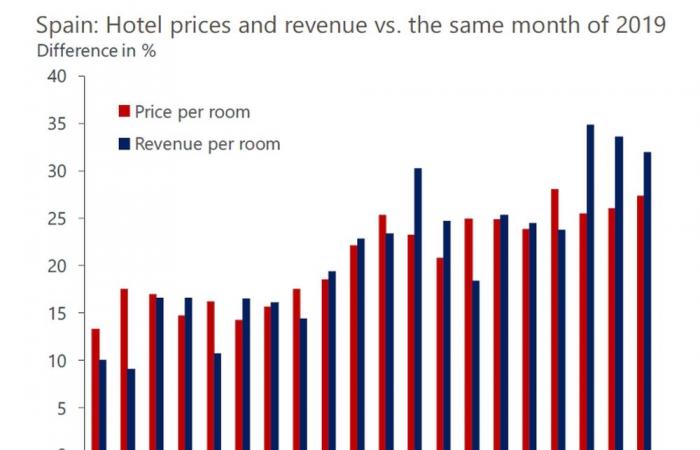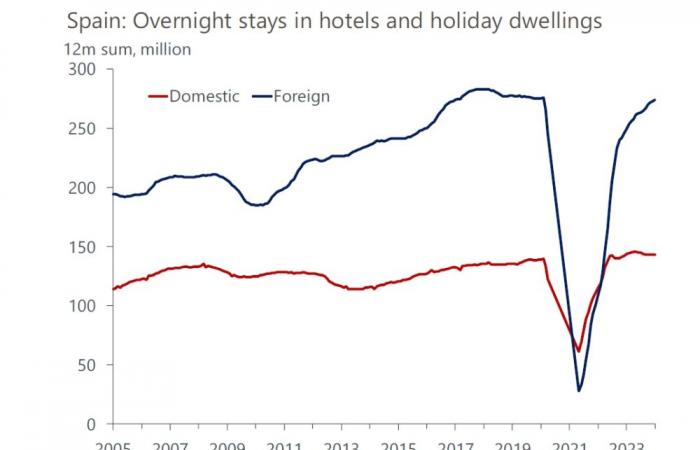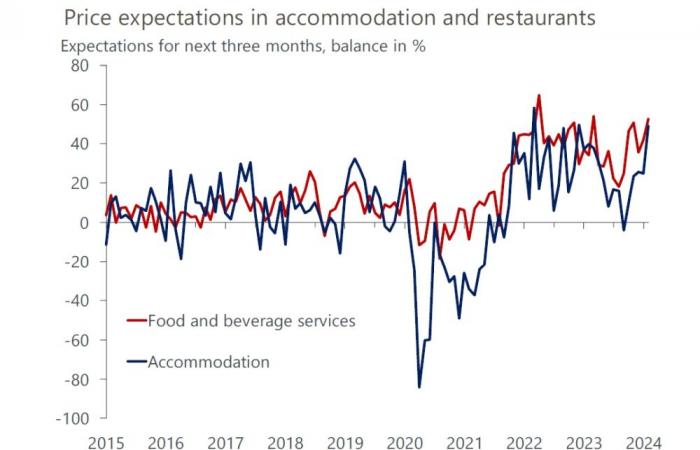Despite inflation in Spain being at high levels, the tourism sector recorded, in 2023, the best results ever, with more than 85 million tourists visiting the country, generating revenue in excess of 108 billion euros.
However, analysts Oxford Economics say that strong tourist activity will cause inflation to be “stickier” in Spain than in the rest of the euro zone this year. Almost half of services inflation is being driven by high hotel and restaurant prices, coinciding with an increase in the number of foreign arrivals since the end of pandemic restrictions.
“The strong tourism sector has helped Spain become one of the fastest growing economies in the eurozone, but it is also an important factor behind the stickiness of services inflation in Spain, which has remained above 4% in recent years. last two years”, says Oxford Economics.
Despite moderating the almost double-digit increases recorded in 2022, inflation in this category (restaurants and hotels) continues to be above 5%. “What is most worrying is that, after eliminating base effects, inflation dynamics indicators indicate that this appears to be a new normal for the sector, with inflation fluctuating steadily between 5% and 6% per year. over the past year”, highlight the analysts.
Oxford Economics analysts stress, however, that the sector is benefiting from strong demand, which appears to be “highly inelastic in relation to prices”. This fact is particularly evident in hotels, which continue to see their revenue per room increase in parallel with the increase in rates. Occupancy rates are rising despite prices now being almost 30% above pre-pandemic levels – almost double the rise in global inflation – suggesting “little or no impact on consumer demand”.
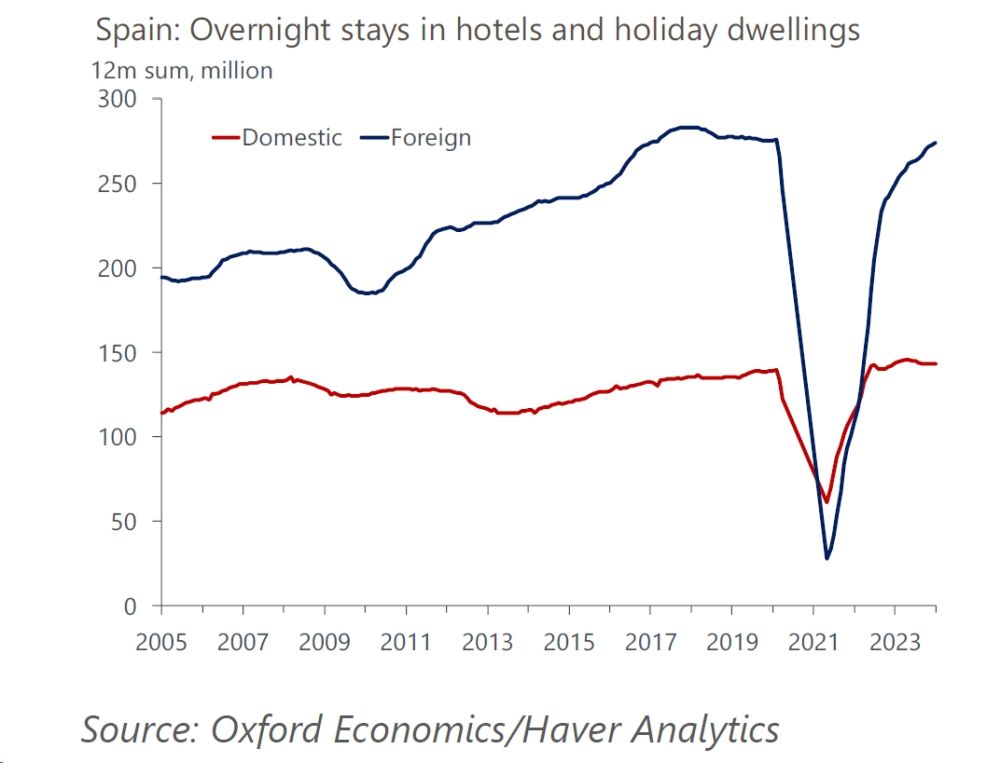
For 2024, analysts predict that the continued strength of the tourism sector means it will be difficult to bring down services inflation significantly this year. “We expect inflation in the hotels, cafes and restaurants category to remain above 5% this year. This alone will be enough to add almost 2 percentage points (pp) to services inflation, resulting in our forecast for services inflation to be above 3%”.
Beyond 2024, the outlook points to a moderation in demand. Although the Tourism Economics team, part of Oxford Economics, expects foreign arrivals to grow robustly in the coming years, “the increase in the pace of growth will gradually decrease”, they point out.
Meanwhile, domestic travel, which represents a third of all overnight stays in hotels and holiday homes, is stabilizing and will even begin to decline in 2023.

Furthermore, with price competitiveness being a key factor in the success of the Spanish tourism sector, “we think it is likely that the long period of price increases will begin to have an impact on consumer behavior”, admit analysts at Oxford Economics. Some data suggests that consumers are booking their holidays early, trying to benefit from early discounts and lower prices. “We think the sector’s pricing power over the past two years is unlikely to be sustained as the tailwinds of the post-pandemic recovery and associated ‘revenge spending’ will fade.”
Consequently, analysts expect that inflation in accommodation and, to a lesser extent, restaurants – especially in tourism venues – “will continue to moderate in 2025. With no signs of wage growth or excessive pressures on demand driving up hotel prices services in more general terms, this should contribute to inflation in services approaching 2%, causing, in turn, underlying inflation to also fall”, conclude the analysts.

